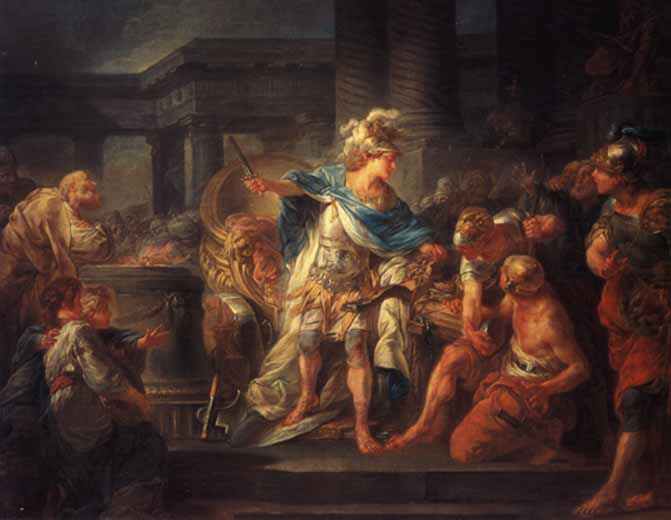What did Jesus say about taxes?
The two most important passages:
- The miracle of the coin in the fish’s mouth—Matthew 17:24-27
- Render unto Caesar—Matthew 22:17-21 (and parallels)
We should consider both passages together, letting Scripture interpret Scripture. It’s especially revealing to look at the latter in the light of the former.
Matthew 17 tends to be overlooked.
Consider the article Why does the IRS get my taxes even when Jesus has my heart? It’s written by Dr. Timothy Paul Jones of the Southern Baptist Theological Seminary. I focus on this article because it clearly shows what kinds of attitudes even the wisest and most biblically faithful teachers now take. Though the article is over 2000 words long and cites 31 different passages from 17 different books of the Bible, somehow it does not address Jesus’ most clear statement about taxation.
Matthew 17:24-27
24 And when they had come to Capernaum, those who collected the tribute money came to Peter and said, “Doth not your master pay tribute?”
25 He said, “Yes.” And when he had come into the house, Jesus preceded him, saying, “What thinkest thou, Simon? From whom do the kings of the earth take custom or tribute? From their own children, or from strangers?”
26 Peter said unto Him, “From strangers.” Jesus said unto him, “Then are the children free.
27 Notwithstanding, lest we should offend them, go thou to the sea and cast a hook, and take up the fish that first cometh up. And when thou hast opened his mouth, thou shalt find a piece of money. That take, and give unto them for Me and thee.”
Jesus gave a remarkable principle: his followers do not actually owe tribute to their government. What else could he mean by “the children are free”? As Christians, we owe no man anything, but to love one another (Romans 13:8). “Notwithstanding,” says Jesus, “lest we should offend them…”
Jesus’ perspective bears no resemblance to the authoritarian’s “divine institution” of the state. Should Christians pay taxes? Yes. But why? And in what circumstances does this principle apply? We pay taxes “lest we should offend them.” Our priority is to spread of the gospel. Where the government protects rights (or even makes an honest attempt to), there we best serve our mission by paying taxes.
In light of Matthew 17, let’s look at the better known passage in Matthew 22:17-21.
17 Tell us therefore, what thinkest thou? Is it lawful to give tribute unto Caesar, or not?”
18 But Jesus perceived their wickedness and said, “Why tempt ye Me, ye hypocrites?
19 Show Me the tribute money.” And they brought unto Him a penny.
20 And He said unto them, “Whose is this image and superscription?”
21 And they said unto Him, “Caesar’s.” Then said He unto them, “Render therefore unto Caesar the things which are Caesar’s, and unto God the things that are God’s.”
Why did Jesus ask to see the Roman coin? Wikipedia helpfully comments:
“Whichever Roman coin it was, the fact that Jesus’s interrogators had an idolatrous coin with its “graven image” of whoever, and in the Temple precincts no less, immediately convicted them of blasphemy and put Jesus at a rhetorical advantage.”
Jesus called them hypocrites and then showed them the evidence of it! “Whose is this image?” What shame upon the lawyers (Exodus 20:4)!
Here Jesus doesn’t say what things are Caesar’s.
But in light of Matthew 17, Jesus cannot be saying that, “Caesar had every right to demand a cut of this currency from the subjects who lived in his lands” (contra Jones).
According to Jesus, “the children are free.” Nevertheless, we do follow the wise words of 1 Peter 2:13-16. We submit ourselves “to every ordinance of man for the Lord’s sake, whether it be to the king as supreme, or unto governors as unto those who are sent by him for the punishment of evildoers and for the praise of those who do well.”
This is the will of God. This is the way to be free and to use our liberty for God’s service rather than as a cloak for maliciousness (anarchism).
Biblically, what is Caesar’s portion?
A ruler’s “portion” is to protect people from the initiation of force. All the exhortations to obey our rulers come within this crucial context.
Statist Christians leap from these verses to the conclusion that Christians should never rise against tyranny nor claim a right to own their own property. It is among the gravest and most anti-American errors I know.
Thankfully, our founding fathers knew how to think in principle.
While the Anglican John Wesley was discouraging the founders, saying, “I am taxed; yet I am no slave,” these brilliant men saw the essential issue. The British government did not recognize their rights on principle. They were indeed slaves, as the crown saw it.
But the founding fathers recognized rights. Their recognition was imperfect, yet it was real. By both Scripture and reason they understood that the state is not a paternal authority. The state is the protector of individual property and liberty.
“The children are free,” said Jesus.
What do you say?
In this series:
